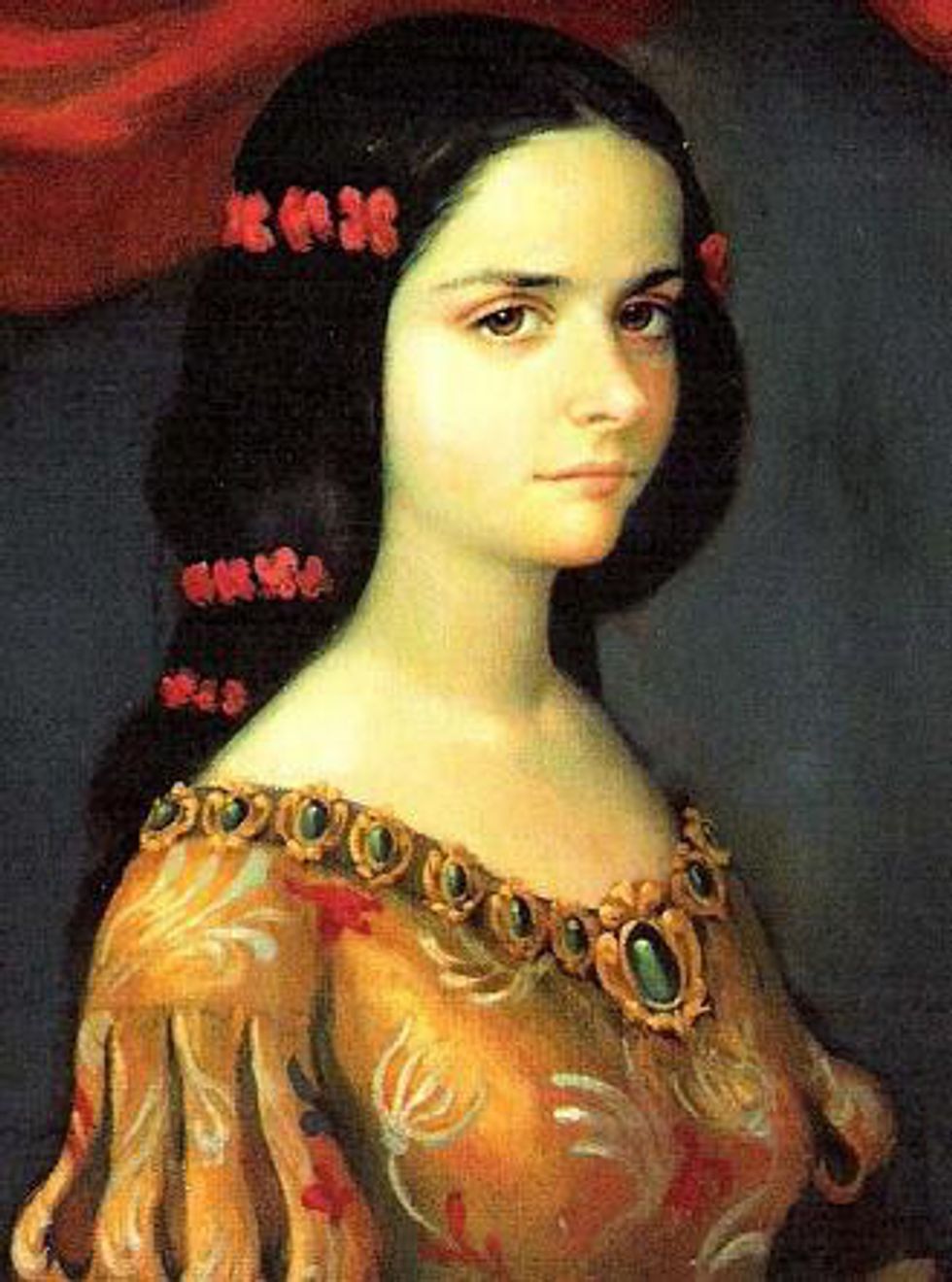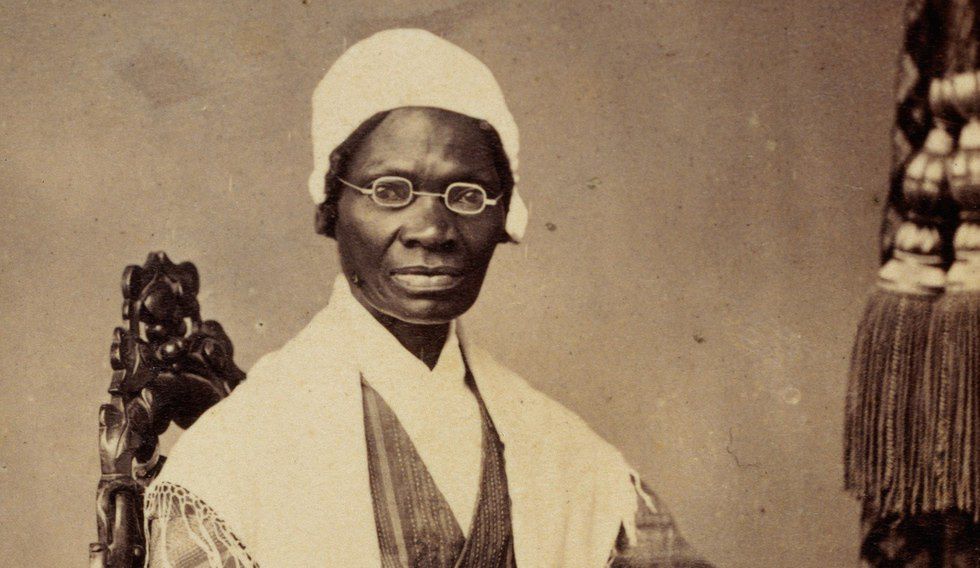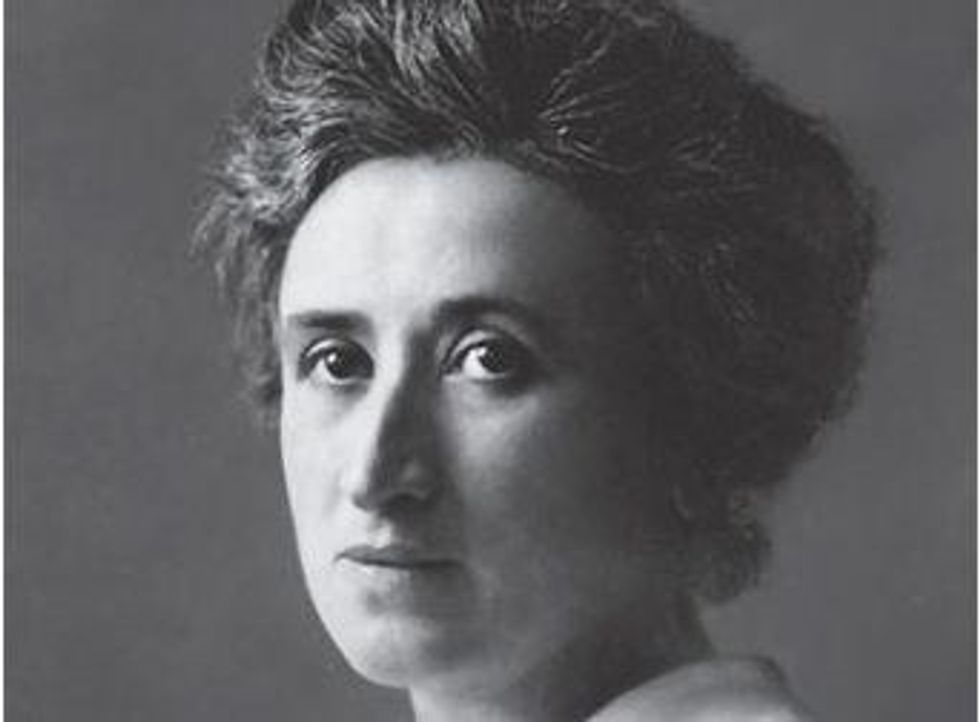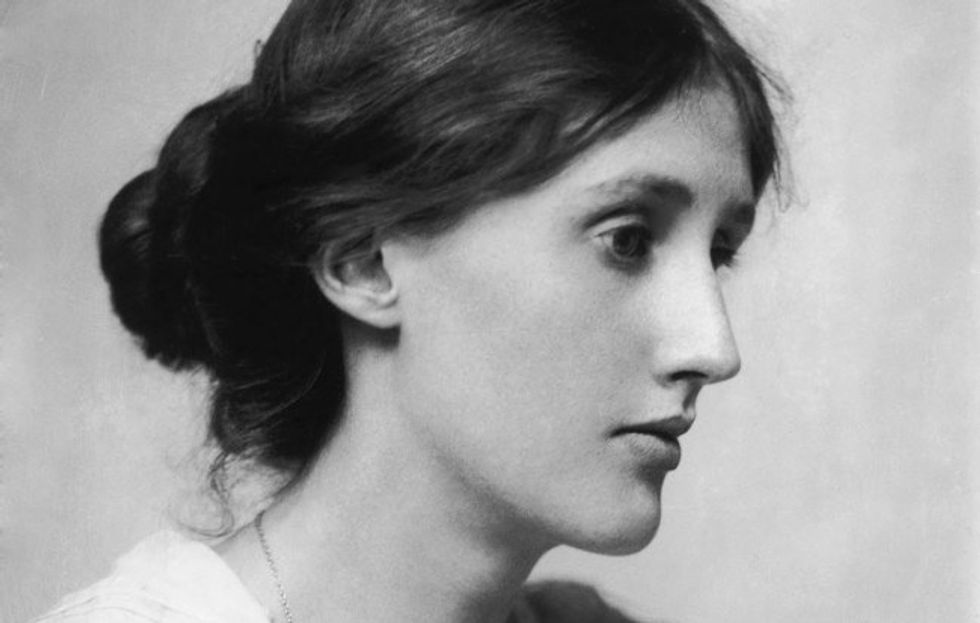It is Mother's Day in America: brunch tables are being filled, Susan G. Komen Races for the Cure are taking place all over the country, and, most importantly, we are all taking a moment out of our hectic lives to give a tribute to the women who raised us. While there is still a lot of work to be done, I figured today would be a great day to also give tribute to some of the women who have fought the patriarchy and paved the road we all now march on.
1. Sor Juana Inés de la Cruz (1651-1659)
Sor Juana Inés de la Cruz was born in 17th century Mexico, and known from a young age as a brilliant mind and scholar. She decided to take her vows early and become a nun so that she could continue her studies. She read and wrote tirelessly, composing poetry and plays that refuted societal norms and challenged cultural views. She is probably most famous for her Respuesta a Sor Filotea, in which she champions a woman's right to education.
As her fame began to grow, she started to feel push-back from the Catholic church, as the church has done throughout it's long history. Instead of bowing to the powers that be, Sor Juana pushed back, arguing for the equality of women and freedom of education.
She died in Mexico Cit, Mexico on April 17th, 1659. She is accredited with being the first published feminist in the New World, and her plays and poetry are still read today.
2. Sjourner Truth (1797-1883)
Born into a harsh life, she used her trials to elevate those around her. She got away from her slaveholder in 1926, escaping with her young daughter, and went on to challenge the court and get her son back from a vicious slave owner in Alabama. Her son, Peter, one day took to sailing on a whaling ship and never came home.
She was a staunch abolitionist and feminist, penning her memoirs under the title The Narrative of Sojourner Truth: A Northern Slave. In May of 1851, she delivered a speech to the Ohio Women's Rights Convention in Akron. The speech would later become known as "Ain't I a Woman?" Though the original speech allegedly did not ask that question once.
Truth continued to advocate for abolition even after Lincoln's Emancipation Proclamation. In her view, and safe to say she was right, it did not go far enough. Se continued to fight up until her death in her home in 1883.
3. Rosa Luxemburg (1871-1919)
Rosa Luxemburg was a Polish-born revolutionary, and a fighter against the Imperial German state. Well read and well versed in the politics of er time, she was a guiding light to the women fighting for adequate pay and suffrage. She played a key role in the founding of humanitarian Marxism, and stressed that democracy and mass action were the keys to achieving international Socialism.
Luxemburg started organizing at a young age. Born into a Polish-Jewish middle-class family in a Russian-ruled state, she started organizing in High School. She did not support Nationalism and considered such an idea regressive, but was a proponent of the idea of International Socialism. Instead of rebuilding the borders that led to the old wars, she wanted to tear down the state from the inside and leave a greater, more just world for her children. Her anti-nationalism was one of the great disagreements she had with Vladimir Lenin.
Luxemburg married in 1898 German-born Gustav Lübeck, in order to attain citizenship. While her male counter parts argued for a gradual change, she resisted, saying change must come now. Sh argued that parliament was nothing more than a bourgeiose sham, which has some echoes in truth today.
Her ideas began to catch fire in the Russian Revolution of 1905. It was there, not in Germany as she had hoped, that International Socialism began to ferment. Later, when Stalin systematically deconstructed the ruling party by eliminating those in joint power, she would already be dead, and therefore not have to live to see her dream get swallowed by Authoritarian Nationalism.
She continued to agitate the ruling class, and when World War I broke out she organized revolts inside Germany. This got her the label "Bloody Rosa" but the wealthy press. In 1919, while organizing the Spartacus Revolt, she was arrested and killed in Berlin by members of the Conservative group Freikorps.
4. Virginia Woolf (1882-1941)
Virginia Woolf was raised in a free-thinking, privileged household in Western London. Her two brothers were educated in Cambridge, though she had to be self-taught and home-raised in her parents library. Her father, Sir Leslie Stephen, was a historian and autor, and pat of the Golden Age of mountaineering, and her mother, Julia Prinsep Stephen, was a nurse, and a model for several pre-Raphaelite painters.
Woolf was a visionary in the modernist movement, and shaped some of her scenes in the groundbeaking To The Lighthouse off of her childhood summer home at St. Ives. She was a lighthearted young girl, but adolescence was hard on her. Coping with the trauma of sexual abuse b her half-brothers George and Gerald Duckworth at the age of six, her trauma was only amplified when her mother died at 49, while Woolf was only 13.
Woolf did the best she could with what she had. Struggling through her depressions, she learned German, Greek and Latin at King's College in London. In 1905, when her father died, she had to be institutionalized for a short period.
She met her lifelong partner Leonard Woolf in 1912, when she played part in a hoax with a group of friends. Dressed as Ethiopian nobles, Woolf going as a bearded man, they convinced the English Royal Navy to show them their ship, the HMS Dreadnought.
Virginia and Leonard were great influences on each other. A few years before marrying, Virginia had been working on her first novel. After innumerable revisions, she finally released it in 1915, as The Voyage Out. She broke into literary fame with her fourth novel, Mrs. Dalloway. The book weaves two seemingly separate storylines, that of Mrs. Dalloway, a hostess and wife of a Prime Minister, and Septimus Smith, a young soldier suffering from PTSD. A social novel, Woolf's brilliance is epitomized in the flow and craft of her narrative.
Woolf's narratives fell into the shadows shortly after her death by suicide in 1941, at the height of the German blitz. Her popularity and stunning prose reemerged during the Feminist Movements of the 1970s.
5. Malala Yousafzai (1997-)
One of the current standard bearers of the movements of these great women, Malala Yousafzai was born in Pakistan in 1997. As a child, much like Sor Juana, she became an advocate for the education of young women. Because of her stance, which some would call radical, she was hunted by the Taliban and shot on October 9th, 2012.
Se survived the shooting, and has used the subsequent press to continue to speak out on the importance of education. In 2014 she became the youngest person ever to win the Nobel Peace Prize.
In 2009 the Taliban decided that girls in her valley could not go to school. Her response "How dare the Taliban take away my basic right to education," almost cost her life. Thankfully for her, and for all of us, the bullet fell short of death. She is continuing her education, and the fight for equal rights to this day.
So enjoy your Mother's Day, share the love your mom has for you, and keep looking forward.


























